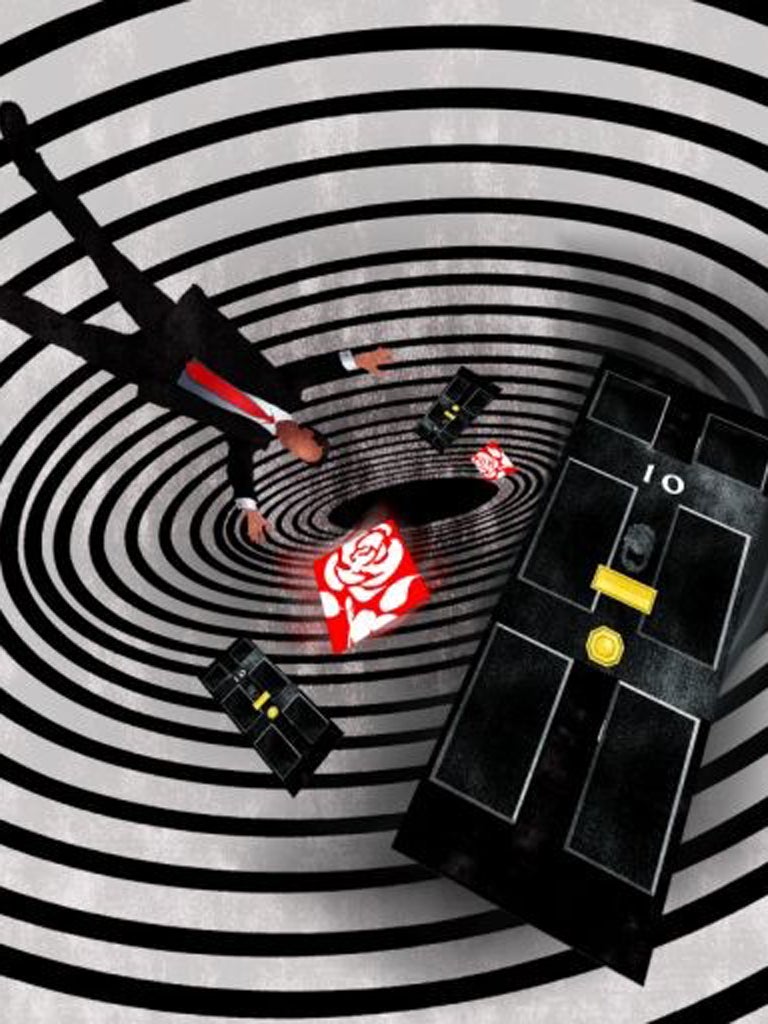Mary Ann Sieghart: What happens when even your supporters don't believe in you?
The problem is that Ed Miliband is too clever, unlike Neil Kinnock, who didn’t seem clever enough


If you were prepared to tell pollsters you were a Labour supporter, the chances are you'd say you supported its leader too, right? Well, buried in the interstices of a YouGov poll for the Sunday Times yesterday, and not even mentioned in the paper, is an extraordinary figure. Only 16 per cent of Labour supporters agree that: "Ed Miliband has the right policies and also looks and sounds like a possible Prime Minister." A staggering 59 per cent like his policies but say they can't imagine him in Number 10. And a further 11 per cent don't like his policies and can't see him as Prime Minister either. That's 70 per cent of Miliband's own followers who don't believe in him.
What a way to start a new year! A member of his Shadow Cabinet says, in mitigation, "These are the dark hours – it's the three-o'clock-in-the-morning stage of opposition." Well, Miliband had better buck himself up before dawn or he may never have the chance to get out of bed. For even among Labour voters, his brother David has nearly three times as much support on the question of who'd make the best party leader.
The past week has seen the beginnings of a fightback. Miliband has conceded that Labour won't be able to campaign at the next election promising more spending. And his Shadow Chancellor, Ed Balls, now says Labour will preserve all the Coalition's cuts and will make no promises to reverse any spending or tax policy brought in by this Government.
Miliband's strategists believe that it was important for Balls, of all people, to be saying this. After all, he's been deficit-denier-in-chief. But neither Balls nor Miliband will make the critical admission that Labour spent too much, too unwisely in office. And without that, it's going to be hard for them to be heard.
In yesterday's poll, nearly half of voters said they would think more highly of Miliband "if he apologised for the mistakes Labour made when it was in government". He has made apologies – for instance, for under-regulating the banks – but even yesterday, on The Andrew Marr Show, he refused to admit that Labour had spent too much in the good times.
It has fallen to individual Blairite ministers to do a mea rather than a nostra culpa. The Shadow Education Secretary, Stephen Twigg, for instance, admitted yesterday that the school-building programme under Labour "didn't always deliver absolute value for money". Well, there's an understatement. Pupils got fabulous new buildings, often by renowned architects, but the bill was huge and we'll be paying it for years to come. And who was Education Secretary? Ah ... Ed Balls.
It's a continuing problem for Miliband that more people still blame Labour for the cuts than blame the Coalition. The figure has been hovering around 40 per cent for a whole year, despite Balls arguing vociferously that the Coalition has been cutting too far, too fast.
And now voters are going to be faced with a head-spinningly confusing message. Labour will still say that the Government is cutting too far, too fast, but it will also say that it won't reverse those cuts. So is it in favour of the cuts or against them? The only answer is incredibly convoluted, and it goes like this. Feel free to skip the paragraph if it makes your eyes blur.
"If we were in government, we wouldn't be cutting this fast or this much. But because the Government's cuts are damaging economic growth, there will be fewer tax revenues and more spending on unemployment benefits, so even with their cuts, the deficit won't shrink as fast as the Coalition wants. That means, by the time of the next election, the deficit won't have been eliminated, which means, if we win, that we'll have to make even more cuts. So we won't be able to reverse the ones that have already been made." Still with me?
If you were a Labour canvasser, I suspect the front door would have been politely shut in your face long before you had time to get to the end of that explanation. Labour's argument may turn out to be economically correct but politically it is almost impossible to sell. And from now on, the Tory or Liberal Democrat riposte couldn't be simpler.
Each time a Labour spokesman opposes a Coalition cut, the minister will be able to say, "But you've now said you accept our cuts. Are you for them or against them? If you're going to accept them in three years' time, why not now?" At which point the Opposition politician can do little but squirm, particularly if the cut is a really noxious one.
That's not to say that what the two Eds are doing is fundamentally wrong. To regain credibility on the economy – without which they can't win an election – they have to show that they understand the necessity of tackling the deficit, just as New Labour did in the 1990s. Miliband's advisers admit they are modelling this move on Tony Blair's and Gordon Brown's announcement before the 1997 election that Labour would stick by the Tories' stringent spending plans.
But today's policy isn't strictly the same. The equivalent at the 2015 election would be if Labour promised to match any new cuts proposed by the Coalition partners to eliminate the deficit in the parliament to come. To accept the previous parliament's cuts is just a necessary hitching post on the way.
Moreover, in the 1994-97 period of opposition, while Blair and Brown were designing their route back to economic credibility, they weren't disagreeing with the Conservative Government's policy of curbing spending to reduce the deficit. So there was no confusion about what they stood for, unlike now.
In the past few weeks, Miliband has been compared with the hapless Neil Kinnock, another Labour leader who never looked prime ministerial enough to win an election. But if anything, the problem is that Ed Miliband is too clever, unlike Kinnock, who didn't seem clever enough. Today's Labour leader thinks that if he can get his head round complicated economic arguments, so will the voters. Sadly for him, though, not everyone has an Oxford PPE degree. And however hard he tries to explain the intricacies of Labour's new economic policy, it's never going to be something he can translate into a simple political slogan. No wonder the Tories are delighted.
Join our commenting forum
Join thought-provoking conversations, follow other Independent readers and see their replies
Comments
Bookmark popover
Removed from bookmarks